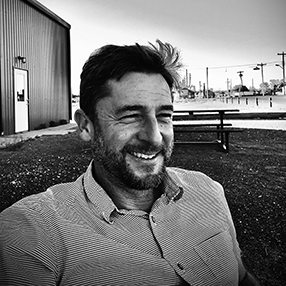Some Consequences of the Made Thing
The End. Above these words the sky closes.
It closes by turning white. Not
The white of all clouds or being within a cloud.
White of worldless light. The End.
Feel a silence there that reminds you of a scent.
Crushed grass the hooves galloped through
Or is it the binder’s glue?
Some silence never not real finally can be
Heard. Silence before the first words.
Precedent chaos. Or marrow work.
Or just the sound of the throat opening to speak.
Like those scholars of pure water
Who rode through mountains and meadows
To drink from each fresh spring a glass
And then with brush and ink wrote poems
On the differences of sameness,
You too feel yourself taste the silent page
Of the end and the silent page of beginning.
They taste so much of whiteness never more
White than white that’s been lost.
You have some sense of the book
Altering, page sewn secretly next to page,
Last page stitched to first. O, earth—
It rolls around the solar scroll
Turning nothing into years and years into
Nothing. At The End you’re a witness to this work
That wears the witness away. And who are you
Anyway. Pronoun of the 2nd person. Lover,
Stranger, God. Student, Child, Shade.
Something similar gathers in you.
Another way of saying I in a poem—
Of saying I in a poem that realizes at the end
That I am just a distance from myself.
And so are you. That same distance.
Copyright © 2017 by Dan Beachy-Quick. Originally published in Poem-a-Day on May 31, 2017, by the Academy of American Poets.
“For a few years now, I’ve been studying ancient Greek, and one of the small discoveries that has felt of earthquake magnitude to me isn’t only the well known etymology that the word for poet (poietes) means ‘maker,’ before it means ‘poet,’ and so makes of the poet one whose work fundamentally is building, but that the verb related to that noun, poieo, which in the active voice means ‘I make,’ has a different meaning in the middle voice. The middle voice, not present in English, might be thought of along Keatsian lines—it is when a verb’s action is performed against itself, and so is active and passive at once, the doer and the done to. In the middle voice poieo means ‘to consider.’ So it may well be the poem is the thing that must be built in order to consider it, a space in which thinking cannot occur before the setting down of the lines, and so of feeling, too. This poem, one of a loose set of such, ponders the consequences of that possibility.”
—Dan Beachy-Quick

